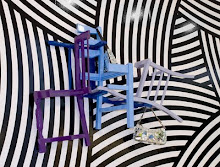Flarf is unlike anything else I have read. I wasn’t quite sure what to expect when choosing Flarf as my topic. All I wanted was something interesting enough to keep me going through the end of the year. And that is exactly what I got. Flarf poetry is almost like jumping into an ocean of insanity, filled with waves of vulgar language and ideas. The creation of Flarf is what first intrigued me, and the reason I chose this subject for my final project.
What is Flarf, you may ask? It’s a poetry movement created in late 2000 by a man named Gary Sullivan initially as a joke. Flarf contains no strict rules or guidelines. It is, exactly what it sounds like, a whole load of Flarf (definitely not Fluff.) I was lucky enough to have Willies blog from last year to help guide me through this project. As he stated, it’s hard to find Flarf for there are no books dedicated to it and most of it is performed. Reading and viewing these pieces give the mind a chance to dive into a mess of gargled up poetry. Or can it even be considered poetry?
Similar to Slam Poetry (Michael!) Flarf poetry is best performed. (View here or Youtube.) Listening to this Flarf is more humorous than just reading, because most lines are very dry, awkward, or vulgar. In Nada Gordon’s “My Favorite Things Redux,” she sings the lines of her poem to the tune of “My Favorite Things” from the movie The Sound of Music. When reading poems such as Chickee Chickston’s “My Mary Oliver,” one may think the finds of the poem would be lovely and nice as it seems to be about a woman or love interest. However lines range from, “My Mary Oliver has three stomachs:greater omentum, peritoneum, and kitty cat tummy” to “My Mary Oliver knows who black people are.” Juxtaposition is what makes or breaks Flarf poems. Most of these poems are already pushing the line of literature, so meticulous collaging of the lines throughout these pieces that give them a special oomph, and make them bearable.
"A goofy non sequitur avant-garde poetry that favors typos and other ways of being “wrong,” flarf is often built from collaged Google search results and Internet chat-room texts (and so distills something elemental of our era). The technique is sometimes called “Google sculpting.”
GREG COOK (No Relation to Mr. Cook) The Boston Phoenix.
I found this quote on Willie's blog and thought I would share it. Although some people think Flarf is garbage, I think it’s a way to glorify the bad by favoring typos or showing off the strange elements in our world. Flarf is a comedy, but due to the difference in personal humor some people can’t stand it. Flarf is no family movie, but it is definitely worth the read. Cook also refers the technique behind the poetry as “Google sculpting.” This reference places this type of poetry as art. Poets in the Flarf collective creatively place each line with and open minds as they string these poems together.






0 comments:
Post a Comment